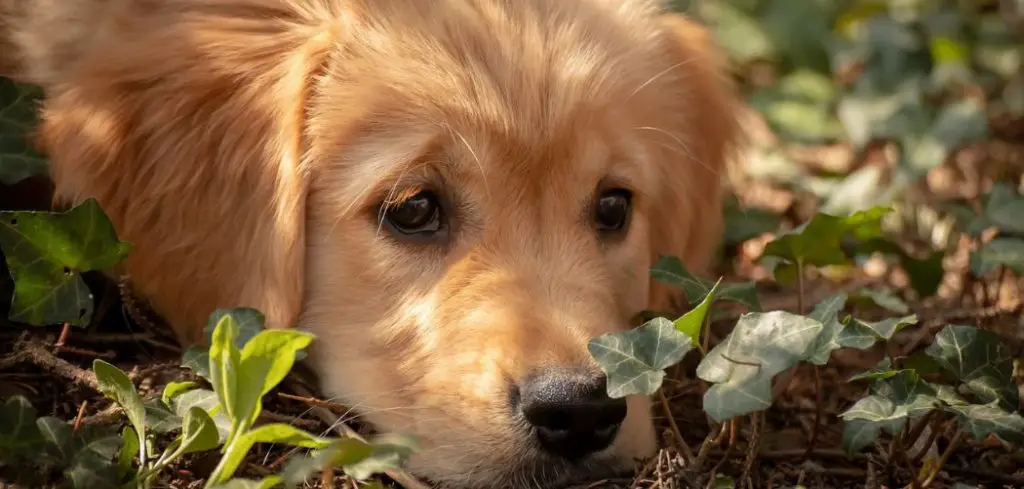When your dog starts panting heavily and obsessively chewing on their paws, it can be both puzzling and concerning. These behaviors can indicate discomfort, stress, or underlying medical conditions that shouldn’t be ignored.
We outline the common causes of dog panting and paw chewing, what you can do at home, and when to seek veterinary help.
Why Is My Dog Panting and Chewing on Paws — Why It Happens
Panting and paw chewing together often signal stress, allergies, injury, or internal discomfort. The panting may indicate physical strain, while the chewing can point to localized irritation or anxiety-related behavior.

Common Causes of Dog Panting and Paw Chewing
Environmental Allergies
Dogs often chew on their paws due to seasonal or environmental allergies.
These allergies can cause inflammation and itching, especially after walks on grass, pollen, or mold-contaminated surfaces.
Panting may accompany allergies due to discomfort or the body’s inflammatory response.
Look for red, swollen paws, licking between the toes, and itchy skin elsewhere on the body.
Food Allergies
Certain food sensitivities can trigger both excessive panting (from internal inflammation or gastrointestinal discomfort) and paw chewing (as an external expression of irritation).
Common triggers include chicken, beef, wheat, and dairy.
Your vet may recommend an elimination diet to pinpoint the cause.
Read more: Dog Panting and Anxious (What it means)
Pain or Injury
If your dog is limping, panting, and chewing at a specific paw, it could be a sign of injury, like a thorn, cut, or bee sting.
Panting in these cases results from pain or stress.
Inspect the paws carefully for foreign objects, bleeding, or swelling.
Anxiety or Stress
Dogs self-soothe by chewing their paws when they’re anxious or stressed.
Panting is another classic anxiety symptom, especially when it’s not hot or your dog hasn’t been active.
Triggers can include separation anxiety, loud noises, new environments, or boredom.
Fleas or Mites
Parasites such as fleas or mange mites can cause intense itching and chewing.
Panting may happen from the irritation or due to secondary skin infections causing discomfort.
Flea prevention, skin scrapes, and medication may be needed to treat the underlying issue.
Hormonal Imbalances
Conditions like Cushing’s disease or hypothyroidism may cause increased panting and skin changes, including paw irritation.
These issues often require bloodwork to diagnose and ongoing treatment to manage.
What to Do If Your Dog Is Panting and Chewing Their Paws
Inspect your dog’s paws for visible signs of injury, irritation, or foreign material.
If nothing is obvious, rinse their paws with warm water and a mild antiseptic or paw soak solution to remove allergens or irritants.
Reduce environmental stressors, and consider anxiety aids such as calming treats, pheromone diffusers, or puzzle toys.
Monitor your dog’s food and recent environmental changes, noting any patterns that could point to allergies.
Use an Elizabethan collar if your dog is damaging their skin through chewing.
When to Call or Visit Your Vet
Seek veterinary help if your dog:
Chews obsessively at their paws to the point of redness or bleeding
Pants excessively when at rest or during cool weather
Shows signs of limping or discomfort
Has recurring skin infections or bald spots
Has symptoms of a possible allergic reaction
A thorough exam, allergy testing, or lab work may be necessary to get to the root of the issue.
Read more: Dog Panting and Shaking (Stress, pain, or illness?)
Key Takeaway
Panting and paw chewing together often point to allergies, stress, or underlying discomfort.
While occasional chewing or panting may be normal, persistent or intense symptoms should not be ignored. Consult your vet to determine the underlying cause and bring your dog relief.
